Montgomery Bat Removal
Welcome to Montgomery Bat Removal! We are Alabama bat removal specialists. It is important to know that bats are protected by Alabama law, and are beneficial animals to have in the environment. We do not kill any bats during our bat removal process. Never hire a pest control company or anyone who says they are a Montgomery bat exterminator. For correct and effective bat removal, you want a company that specializes in humane bat colony extraction. Our process is not only the only legal method in Alabama, but it is the most effective. We have a 100% success rate in our bat control process. We perform our industry-best 32-point inspection of your house or building, and seal shut all bat entry holes down to 1/4 inch as part of the removal process, during which we remove the colony via special one-way exclusion devices specific to your architecture. Once all bats are safely out, we permanenetly bat-proof the structure. We also provide guano (bat droppings) removal and decon. Click on our Montgomery Bat Control Prices page to find out more about our prices for bat control work. We work 24/7/365, and would love to talk to you about your bat problem. Call us any time at 334-759-6509 to discuss it, discuss our pricing, and if you wish, set up an appointment at your convenience, often same-day.
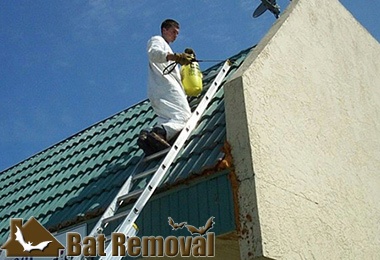
Montgomery Building and Attic Inspections
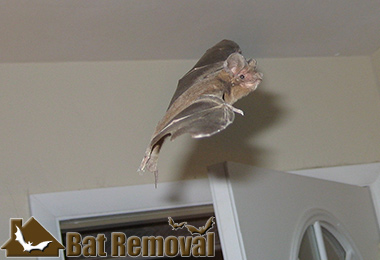
No-kill Alabama Bat Extraction

Guano Cleanouts - Serving all of Alabama
Call 24/7 to discuss your bat problem.
Same-day or next-day appointments.
32-point inspection of your property.
Written estimates for bat removal project.
Fully state licensed and insured.
Residential and commercial service
100% no-kill Montgomery bat extraction
Complete bat-proofing of your building
Compliance with all Alabama, federal laws
Guano removal and attic decontamination
Our Service Range - 334-759-6509
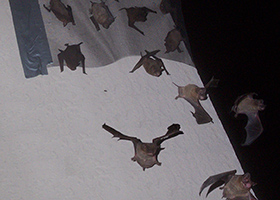
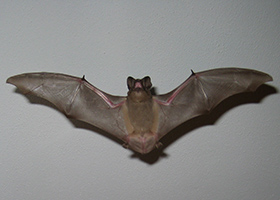
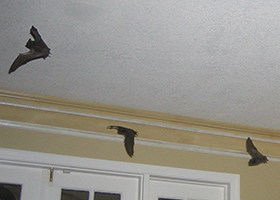
Facts and Information on Big Brown Bats
The big brown bat is a large-sized bat that can often be encountered on wooded areas. You may also see them on parks especially when there is an abundance of insects. They will usually be the last species of bats that will go through the state of torpor. They will enter hibernation starting on the latter part of November up to early weeks of December.
Appearance of the Big Brown Bats
The big brown bat is known for its thinly-furred broad nose. The color of its fur may vary from pale copper to chocolate brown. It has a rounded and blunt tragus. The forearm of this bat can extend at about 42-52mm in terms of length and can weigh at an average of 12-30g. Its appearance closely resembles the evening bat. However, the evening bat will have a shorter forearm. It highlights an upper premolar that makes it unique among the myotis bats.
Habitat
The big brown bat is a native specie of the Nearctic and Neotropical region. They will be living through the whole North America that range from the southern part of Canada up to the other parts of the US. They have also dominated the regions found in the West Indies such as Hispaniola, Jamaica, Puerto Rico, and Cuba. You can also come across this bat in the rural areas. They love to roost on the human structures such as barns, stadiums, churches, and sewers. They will be hunting for insects in a range of habitat such as open fields, forested areas, streams, and rivers.
Behavior
The big brown bats are social creatures who prefer to roost together with the male species except during the nesting season. The mother bat will be creating a nesting colony together with thousands of other bats. The mother bats will be licking her baby that will make it easier for them to distinguish them from the other baby bats. Just like the other bats, they will be using their echolocation when they are hunting for foods and avoiding solid objects.
Diet
Most bats including the big brown bats are considered insectivores. They love the taste of the beetles. Nonetheless, they will also hunt flying insects such as wasps, flies, and moths. They have strong teeth that can pierce through the tough exoskeleton of the insects. They will only forage for insects during the warmer season. During these months, they will be eating non-stop to build their body fats that will help them survive during the winter. They will also go to a state of torpor if it is raining heavily or if the temperature drops.
Humans do not appreciate the idea of sharing their home with the bats. Sealing the entry holes of the bats will keep you away from the unwanted bat visit. Since they are known for eating insects, they can help in managing the population of the agricultural pests. Farmers are encouraged to invite these bats in their barn that will help them save a considerable amount of cash on pesticides.

